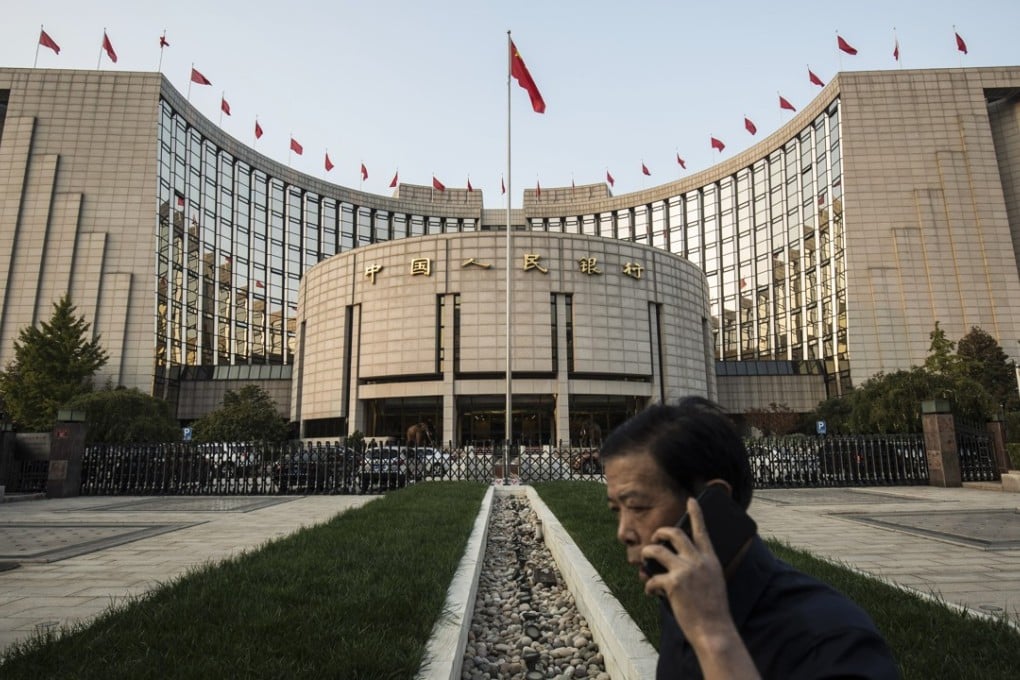Beijing to stabilise the yuan, but intervention to cushion – not halt – currency’s decline, say analysts
- Report suggests Chinese central bank will stabilise yuan in the short term, ahead of Trump-Xi meeting at G20 summit, but will allow it to decline gradually in long run
- No mention of deleveraging hints at increasing debt-to-GDP ratio as well as weaker currency

Beijing will resist downward pressure on the yuan “for now”, although moderate depreciation in the Chinese currency is probably still on the cards, according to analysts. These comments follow the publication on Friday of a third-quarter monetary policy implementation report by the People’s Bank of China, in which the central bank says it will keep the yuan’s exchange rate at an equilibrium level.
In the report, the bank replaces the phrase that it would “increasingly allow market forces to determine the exchange rate” with a pledge to “reinforce macro-prudential management to keep the yuan exchange rate at reasonable and equilibrium level, if necessary”.
China to sell new yuan bills in Hong Kong – a new tool to control the currency now at a 10-year low
“Over the long term, it looks likely that the Chinese government will have to allow the renminbi to depreciate more against the currencies of its major trading partners. Although, for the moment, it remains subject to the central bank’s intervention,” said Dong Chen, senior Asia economist at Pictet Wealth Management.
The change in language, along with analysis that suggests the Chinese central bank has been using its foreign exchange reserves to intervene in the currency market on the yuan’s behalf since August, hints at the PBOC’s willingness to support the currency above the psychologically important level of 7.00 per US dollar. The central bank will support the yuan in the coming weeks, particularly ahead of a crucial meeting between Chinese President Xi Jinping and US President Donald Trump at the end of November, according to analysts.
The Chinese president and Trump are expected to meet at the G20 summit in Argentina, and any progress, or lack of, towards ending the US-China trade war is expected to affect capital flows in Asia. The yuan will weaken moderately around the summit if there are no signs of progress towards a deal and tensions continue to escalate.
Over the long term, it looks likely that the Chinese government will have to allow the renminbi to depreciate more against the currencies of its major trading partners
The Chinese authorities sold close to US$14 billion in foreign reserves in October and US$17 billion in September, according to a model created by Capital Economics, which the consultancy has interpreted as an attempt by Beijing to cushion – but not stop – the yuan’s gradual decline.